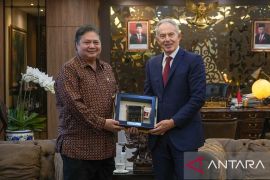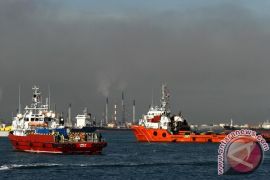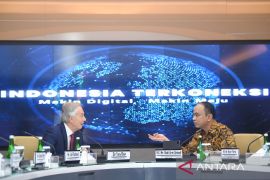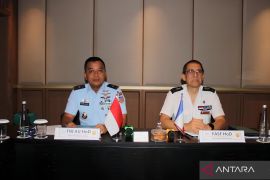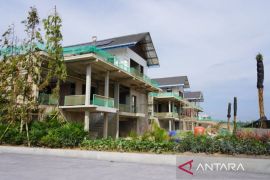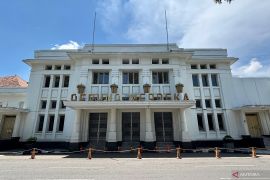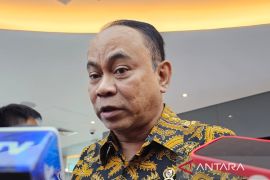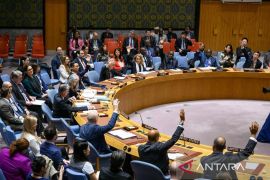Inaplas deputy chairman Budi Susanto Sadiman said here on Sunday that petrochemical industries in many other countries including China, Thailand and Malaysia also suffered a setback in 2012 on weak demand.
Sharp fall was recorded in profit on soaring price of the main feedstock naphtha, while producers could not raise the selling prices of their end products, Budi said.
He said the rise in the price of naphtha followed the soaring prices of oil in international markets.
Naphtha is produced as a by product in oil refinery.
Global crisis befalling advanced countries especially Europe and Chinese slowdown have resulted in weak demand for petrochemical products such as polypropylene and polyethylene, Budi said.
However, in 2013, the condition is expected to improve as naphtha could be substituted with other cheaper feedstock, he said.
State oil and gas company PT Pertamina already used liquefied natural gas or condensate instead of naphtha as the main feedstock for petrochemicals, he said.
"Pertamina knows well about it. If naphtha is not competitive it will use a substitute," he said.
He said cooperation between Pertamina and PTT Global Chemical from Thailand would contribute to boosting development of petrochemical industry in Indonesia.
PTT Global Chemical is the largest producer of olefin and aromatic petrochemicals in Thailand and one of the biggest players in the industry in Asia with a total production capacity of 8.2 million tons per year, he added.
The cooperation between Pertamina and the Thai company would give an additional value for petrochemical industry in Indonesia, which is still heavily dependent on imports for downstream petrochemical products.
Budi said a petrochemical company as big as PTT Global Chemical has been interested in investing Indonesia mainly because of the success of the country in maintaining economic stability.
The country`s economy has grown steadily amid the global financial turbulence.
The country`s economy is predicted to expand further this year by as high as 7 percent to be the third fastest growing economy in the world after China and India.
Meanwhile, the country`s petrochemical industry is forecast to grow 8 percent - 9 percent or by a rate of 1-2 percentage points higher than its economic growth.
The opportunity is wider for the country`s petrochemical industry to grow with the plan of Indonesia and a number of other Asian countries to form a single Asian market the like of the European Economic Community, Budi said.
He said his optimism is also based on the operation of the butadiene plant of PT Chandra Astri Petrochemical Tbk, the country`s largest petrochemical company.
The new factory will strengthen the position of Chandra Asri toward development of an integrated petrochemical industry, he said.
Butadiene is the main feedstock for SBR (Styrene Butadiene Rubber), ABS (Acrylonitrile Butadiene Styrene), SBL (Styrene Butadiene Latex) and other products .
SBR is used as a basic material for synthetic rubber one of the main feedstock for rubber tire and plastic based automotive components.
So far the country has depended entirely on imports for butadiene mainly imports from Japan and South Korea.
Budi said demand for butadiene in Indonesia is high from the automotive industry, which has recorded a leapfrogging growth over the past years.
The country is forecast to produce 1 million units of car a year.
Budi said Chandra Asri is also expected to increase investment in polypropylene sector if the price of the feedstock would return to a normal level.
Demand from downstream industry for polypropylene in Indonesia remains strong averaging 1 million tons a year as against production capacity of only 825,000 tons.
Imports, therefore, are still needed to make up for the shortfall, Budi said.
Editor: AA Ariwibowo
Copyright © ANTARA 2013



